#south asia
Note
Books you would recommend on this topic? Colonial, post colonial, and Cold War Asia are topics that really interest me. (Essentially all of the 1900s)
Hello! An entire century is huge and I don't quite know what exactly you're looking for, but here we are, with a few books I like. I've tried organising them, but so many of these things bleed into each other so it's a bit of a jumble
Cold War
1971 by Srinath Raghavan: about the Bangladesh Liberation War within the context of the Cold War, US-Soviet rivalry, and the US-China axis in South Asia
Cold War in South Asia by Paul McGarr: largely focuses on India and Pakistan, and how the Cold War aggravated this rivalry; also how the existing tension added to the Cold War; also the transition from British dominance to US-Soviet contest
Kennedy, Johnson, and the Nonaligned World by Robert B. Rakove: on the US' ties with the Nonaligned countries during decolonisation and in the early years of the Cold War; how US policy dealt with containment, other strategic choices etc
South Asia's Cold War by Rajesh Basrur: specifically about nuclear buildup, armament and the Indo-Pak rivalry within the larger context of the Cold War, arms race, and disarmament movements
Colonialism
India's War by Srinath Raghavan: about India's involvement in World War II and generally what the war meant for South Asia politically, economically and in terms of defense strategies
The Coolie's Great War by Radhika Singha: about coolie labour (non-combatant forces) in the first World War that was transported from India to battlefronts in Europe, Asia and Africa
Unruly Waters by Sunil Amrith: an environmental history of South Asia through British colonial attempts of organising the flow of rivers and the region's coastlines
Underground Revolutionaries by Tim Harper: about revolutionary freedom fighters in Asia and how they met, encountered and borrowed from each other
Imperial Connections by Thomas R. Metcalf: about how the British Empire in the Indian Ocean was mapped out and governed from the Indian peninsula
Decolonisation/Postcolonial Asia
Army and Nation by Steven Wilkinson: a comparative look at civilian-army relations in post-Independence India and Pakistan; it tries to excavate why Pakistan went the way it did with an overwhelmingly powerful Army and a coup-prone democracy while India didn't, even though they inherited basically the same military structure
Muslim Zion by Faisal Devji: a history of the idea of Pakistan and its bearing on the nation-building project in the country
The South Asian Century by Joya Chatterji: it's a huge book on 20th century South Asia; looks at how the subcontinental landmass became three/four separate countries, and what means for history and culture and the people on the landmass
India Against Itself by Sanjib Baruah: about insurgency and statebuilding in Assam and the erstwhile NEFA in India's Northeast. Also see his In the Name of the Nation.
I hope this helps!
35 notes
·
View notes
Text

Arang Kel, Pakistan
#arang kel#pakistan#south asia#mountains#cottagecore#nature#green#peaceful#forest mist#forest#beautiful places#travel goals#dailystreetsnapshots#travel#photography#street#streets#places
21 notes
·
View notes
Text

Port workers of India stand with Palestine
#THIS IS WHY YOU NEED UNIONS PEOPLE#palestine#from the river to the sea palestine will be free#we stand with palestine#solidarity with palestine#we stand with gaza#gaza genocide#india#desiblr#desi tumblr#israel#south asia#stand with gaza#stand with palestine#from the river to the sea#ceasefire now#ceasefire
3K notes
·
View notes
Text

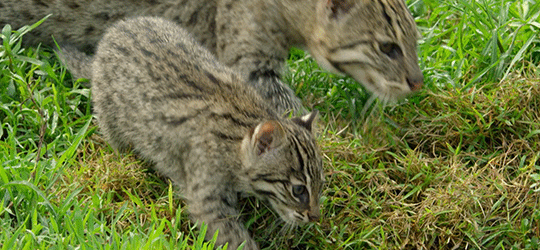

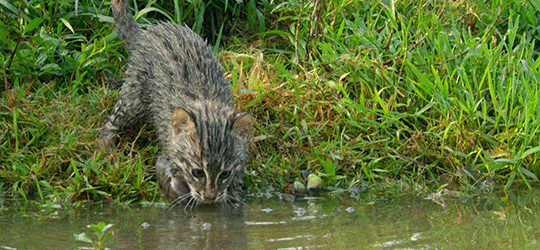
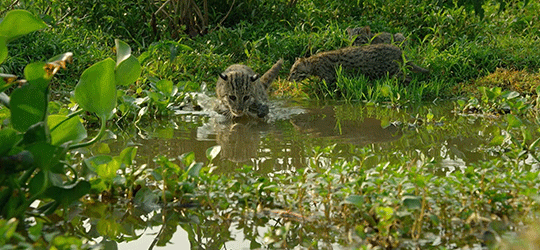
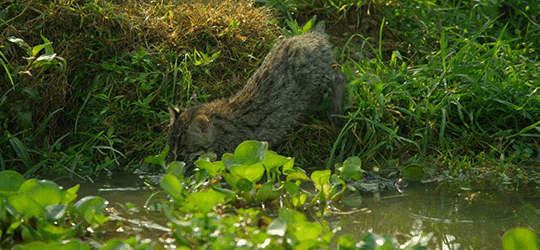
A fishing cat practices hunting with her kittens.
BBC Earth
5K notes
·
View notes
Text


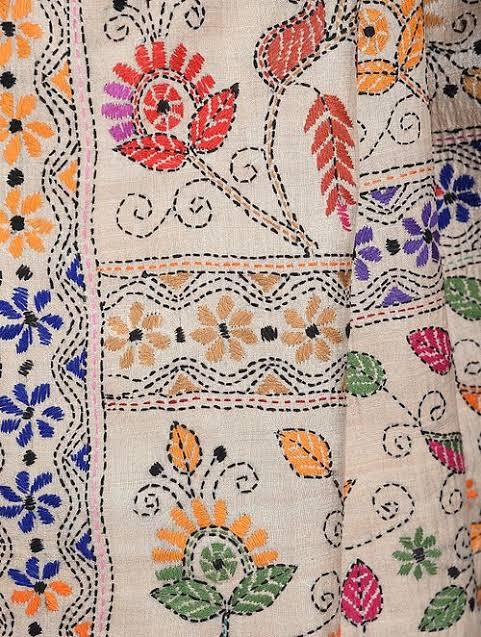
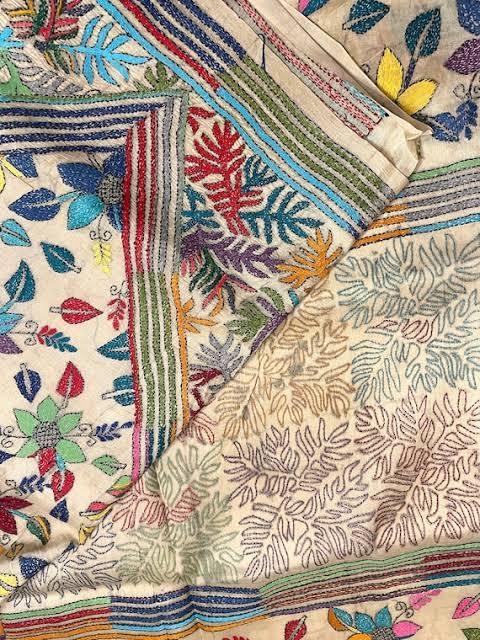

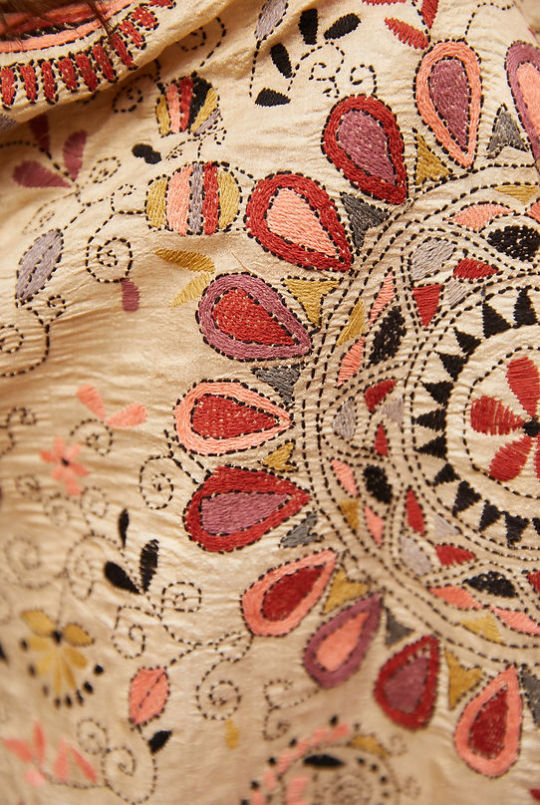
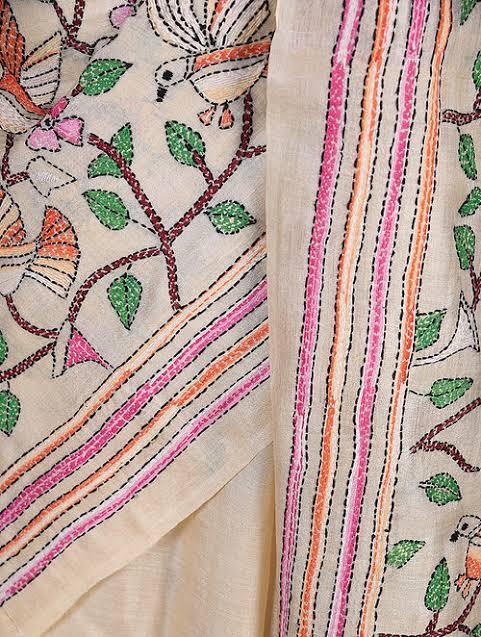
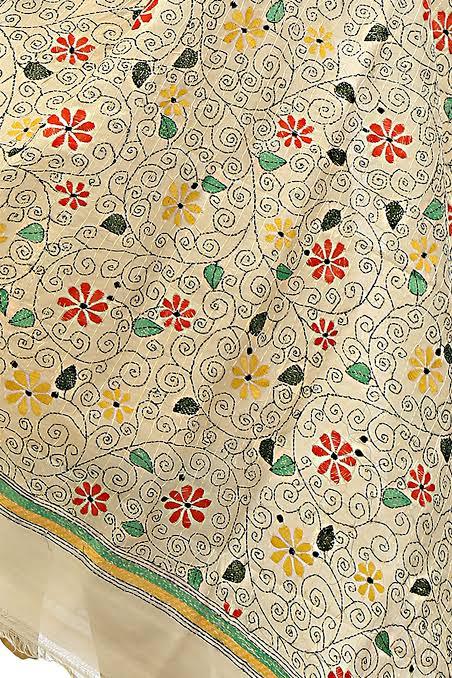

Kantha (Bengali: কাঁথা) is a form of embroidery originating in Bengal region, i.e. Bangladesh and the Indian states of West Bengal, Tripura and parts of Assam. It has its roots in nakshi kantha, an ancient practice among bengali women of making quilts from old saris and rags by sewing them together. In modern usage, kantha generally refers to the specific type of stitch used. The kantha needlework is distinct and recognised for its delicacy. The stitching on the cloth gives it a slightly wrinkled, wavy effect. Today, kantha embroidery can be found on all types of garments as well as household items like pillowcases, bags and cushions.
While it is an increasingly diversifying art form, traditional kantha embroidery motifs are still sought after. Traditional kantha embroidery is two-dimensional and are usually of two distinct types: geometric forms with a central focal point, carried over from the nakshi kantha tradition and influenced by islamic art forms; and more fluid plant, floral, animal and rural motifs with stick-figure humans depicting folklores and rural life in Bengal.
1 / 2 / 3 / 4 / 5 / 6 / 7 / 8 / 9 | textile series
#bangla tag#textiles#ots#kantha#nakshi kantha#bengal#bengali#bangladesh#india#embroidery#needlework#textile art#embroidery art#south asia#south asian
1K notes
·
View notes
Text
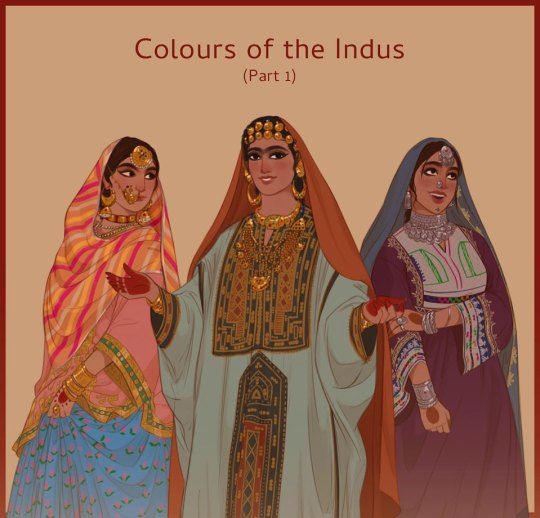




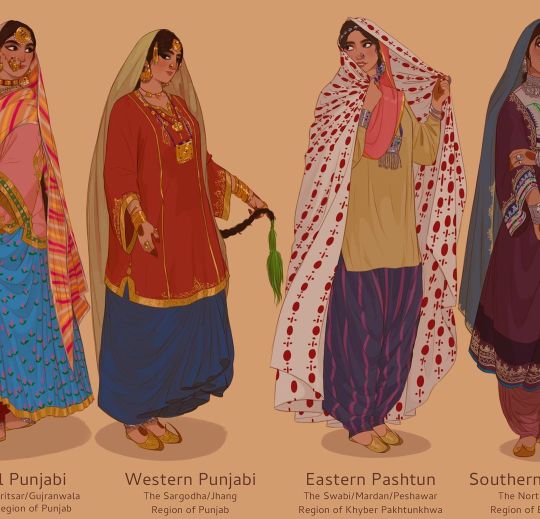
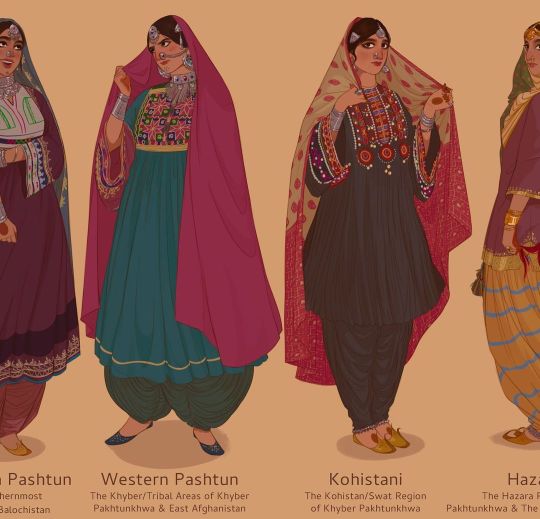


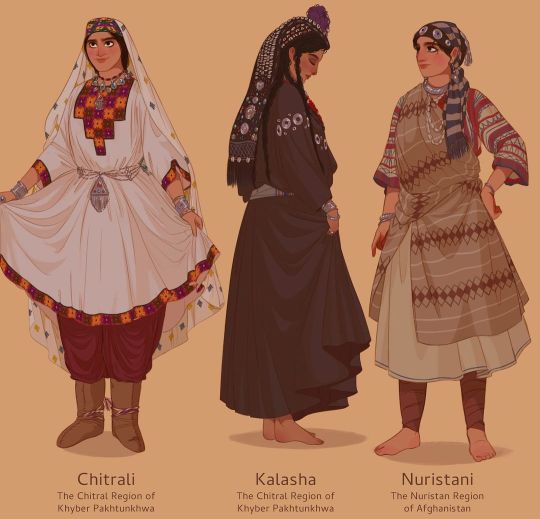
Arsalan Khan
#arsalan khan#arsalanactual#art#south asia#indus river#indus valley#pakistan#india#afghanistan#kashmir#tradition#clothes
1K notes
·
View notes
Text

SOUTH ASIANS ASSEMBLE
E.g: Best Bollywood movie of all time!
#the replies and QT added several years to my life through nostalgia alone#please do not plug your white people musicals on this post. i assure you they are inferior#except Mulan Rouge because Baz L based that on Bollywood and the man understood the assignment#bollywood#kollywood#tollywood#barbie#south asia#desi#twitter#knee of huss
1K notes
·
View notes
Text
"Lead is a neurotoxin; it causes premature deaths and lifelong negative effects. It’s said “there is no safe level of lead exposure” — as far as we know, any lead causes damage, and it just gets worse the more exposure there is.
After a 20-year, worldwide campaign, in 2021 Algeria became the final country to end leaded gasoline in cars — something the US phased out in 1996. That should make a huge difference to environmental lead levels. But lots of sources remain, from car batteries to ceramics...
Bangladesh phased out leaded gasoline in the 1990s. But high blood lead levels have remained. Why? When researchers Stephen Luby and Jenny Forsyth, doing work in rural Bangladesh, tried to isolate the source, it turned out to be a surprising one: lead-adulterated turmeric.
Turmeric, a spice in common use for cooking in South Asia and beyond, is yellow, and adding a pigment made of lead chromate makes for bright, vibrant colors — and better sales. Buyers of the adulterated turmeric were slowly being poisoned...
But there’s also good news: A recent paper studying lead in turmeric in Bangladesh found that researchers and the Bangladeshi government appear to have driven lead out of the turmeric business in Bangladesh.
How Bangladesh got serious about lead poisoning
The researchers who’d isolated turmeric as the primary cause of high blood lead levels —working for the nonprofit International Center for Diarrheal Disease Research, Bangladesh — went to meet with government officials. They collected samples nationwide and published a 2019 follow-up paper on the extent of the problem. Bangladesh’s Food Safety Authority got involved.
They settled on a two-part approach, starting with an education campaign to warn people about the dangers of lead. Once people had been warned that lead adulteration was illegal, they followed up with raids to analyze turmeric and fine sellers who were selling adulterated products.
They posted tens of thousands of fliers informing people about the risks of lead. They got coverage in the news. And then they swept through the markets with X-ray fluorescence analyzers, which detect lead. They seized contaminated products and fined sellers.
According to the study released earlier this month, this worked spectacularly well. “The proportion of market turmeric samples containing detectable lead decreased from 47 percent pre-intervention in 2019 to 0 percent in 2021,” the study found. And the vanishing of lead from turmeric had an immediate and dramatic effect on blood lead levels in the affected populations, too: “Blood lead levels dropped a median of 30 percent.”
The researchers who helped make that result happen are gearing up for similar campaigns in other areas where spices are adulterated.
The power of problem-solving
...When the Food Safety Authority showed up at the market and started issuing fines for lead adulteration, it stopped being a savvy business move to add lead. Purchasers who were accustomed to unnatural lead-colored turmeric learned how to recognize non-adulterated turmeric. And so lead went from ubiquitous to nearly nonexistent in the space of just a few years.
That’s a better world for everyone, from turmeric wholesalers to vulnerable kids — all purchased at a shockingly low price. The paper published this month concludes, “with credible information, appropriate technology, and good enough governance, the adulteration of spices can be stopped.”
There’s still a lot more to be done. India, like Bangladesh, has widespread adulteration of turmeric. And safety testing will have to remain vigilant to prevent lead in Bangladesh from creeping back into the spice supply.
But for all those caveats, it’s rare to see such fast, decisive action on a major health problem — and impressive to see it immediately rewarded with such a dramatic improvement in blood lead levels and health outcomes. It’s a reminder that things can change, and can change very quickly, as long as people care, and as long as they act."
-via Vox, September 20, 2023
#lead#lead poisoning#turmeric#bangladesh#south asian food#south asia#public health#public safety#government#good news#hope
739 notes
·
View notes
Text


Water lily harvesting in Bangladesh (2016) ph. Zakir Hossain Chowdhury
#water lily#bangladesh#south asia#aesthetic#raincore#watercore#water aesthetic#forestcore#fairycore#photography#naturecore#nature#flowers#flora#cottagecore#earth#earthcore
275 notes
·
View notes
Text

Unknown, The monkey and bear armies are aided by giant birds
Series Title: Rama's Journey, ca. 1840
632 notes
·
View notes
Text
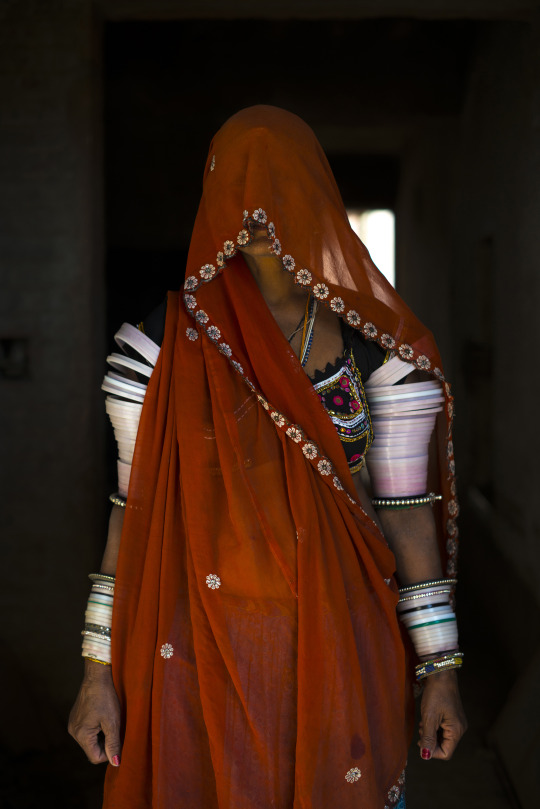
Raika woman, India, by Aman Chotani
#raika#india#asia#south asia#folk clothing#traditional clothing#traditional fashion#cultural clothing
420 notes
·
View notes
Text
Ms. Coll. 390, Item 2676, is a picture book, containing drawings and miniature paintings of birds and animals, mythological beings, scenes of daily life, court scenes, and more. Many of the pictures are unfinished, upside-down or overpainted, suggesting a work in progress or a sketchbook. It is written in Sanskrit, circa 1700-1850.
🔗:
#manuscript#sanskrit#south asia#18th century#19th century#drawings#art#history of art#indian art#india#animals#birds#painting#sketchbook#picture book#book history#rare books
310 notes
·
View notes
Text
Taliban has announced that women in Afghanistan will be stoned to death in public for adultery.
The Afghan Taliban’s supreme leader, Mullah Hibatullah Akhundzada, has issued a disturbing proclamation, vowing to implement brutal punishments against women in public. In a chilling voice message broadcasted on state television, Akhundzada directly addressed Western officials, dismissing concerns about violating women’s rights by stoning them to death.
"You say it’s a violation of women’s rights when we stone them to death," Akhundzada stated. "But we will soon implement the punishment for adultery. We will flog women in public. We will stone them to death in public," he declared, marking his most severe rhetoric since the Taliban seized control of Kabul in August 2021.
These grim statements, purportedly from Akhundzada, who has seldom been seen in public except for a few outdated portraits, emanate from Afghanistan’s state TV, now under Taliban control. Akhundzada is believed to be located in southern Kandahar, the Taliban's stronghold. Despite early assurances of a more moderate regime, the Taliban swiftly reverted to harsh public penalties reminiscent of their previous rule in the late 1990s, including public executions and floggings. The United Nations has vehemently criticised these actions, urging the Taliban to cease such practices.
In his message, Akhundzada asserted that the women's rights advocated by the international community contradicted the Taliban’s strict interpretation of Islamic Sharia law. Akhundzada emphasised resilience among Taliban fighters, urging them to oppose women's rights persistently. "I told the Mujahedin that we tell the Westerners that we fought against you for 20 years and we will fight 20 and even more years against you," he stated.
His remarks have sparked outrage among Afghans, with many calling for increased international pressure on the Taliban.
"The money that they receive from the international community as humanitarian aid is just feeding them against women," lamented Tala, a former civil servant from Kabul.
"As a woman, I don’t feel safe and secure in Afghanistan. Each morning starts with a barrage of notices and orders imposing restrictions and stringent rules on women, stripping away even the smallest joys and extinguishing hope for a brighter future," she added.
"We, the women, are living in prison," Tala emphasised, "And the Taliban are making it smaller for us every passing day."
Taliban authorities have also barred 330,000 girls from returning to secondary school for the third consecutive year. University doors were closed to women in December 2022 and participation in the workforce is heavily restricted.
#please keep the women of afghanistan in your prayers#afghanistan#taliban#women's rights#feminism#tw violence#south asia#afghan
568 notes
·
View notes
Text

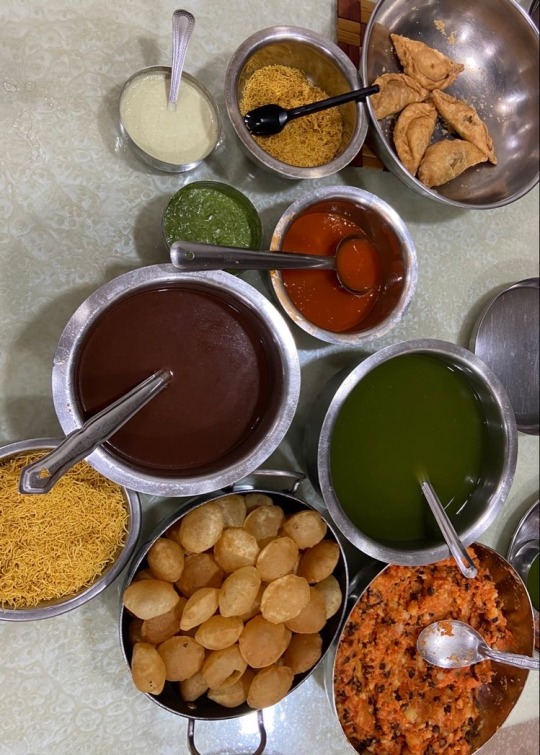
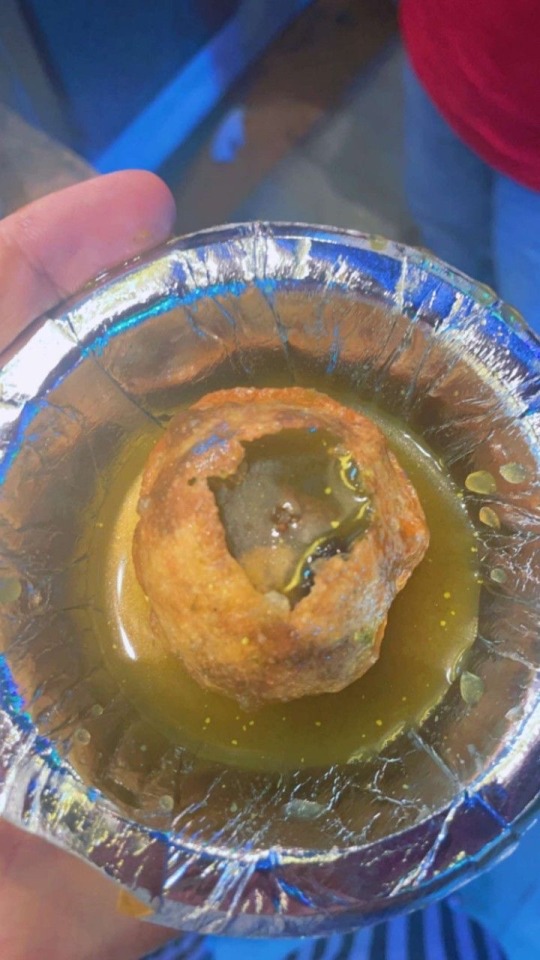
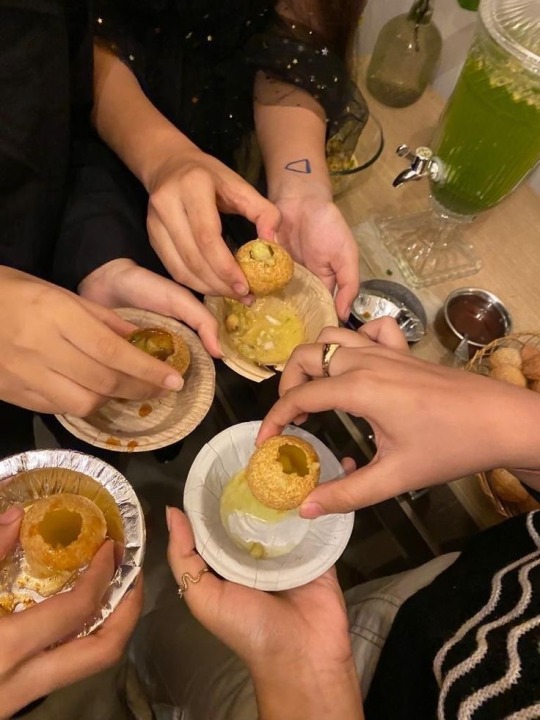
never will there ever be a moment where i refuse to consume pani puri.
#desi culture#desi#desi tag#desiblr#gujarat#south asia#south asian aesthetic#desi academia#desi tumblr#desicore#indianfood#indianstyle#bollywood#hindi#india#indian movies#yeh jawaani hai deewani#love#self love#brown culture
1K notes
·
View notes
Text
I crossed the border into Lahore, Pakistan everyday to attend a college lecture about south Asian history. The border was open and safe, but a fat Labrador who worked for the intelligence still followed me and my partner around every time we crossed it back home. We evaded her with treats.
459 notes
·
View notes
Text



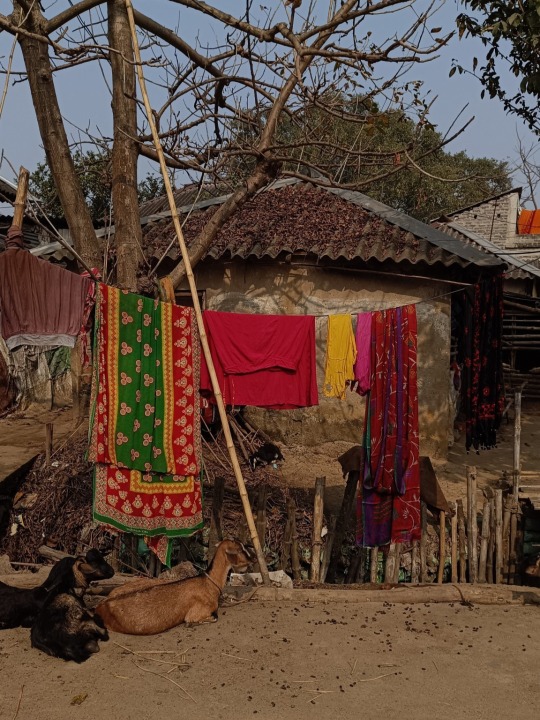
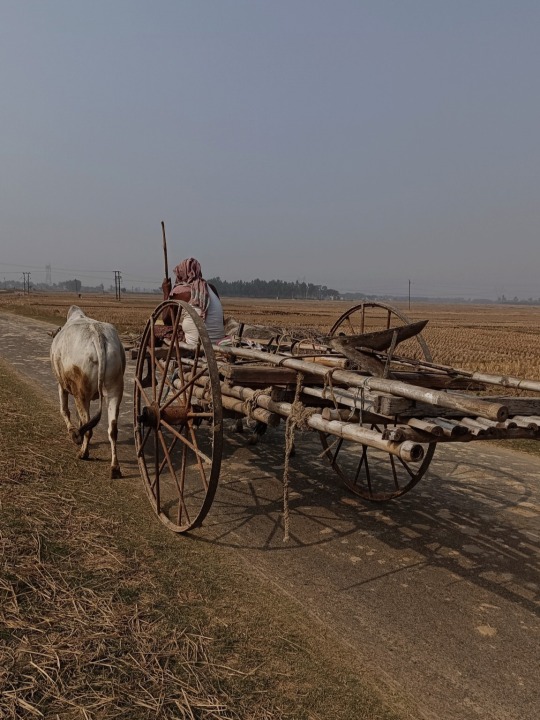

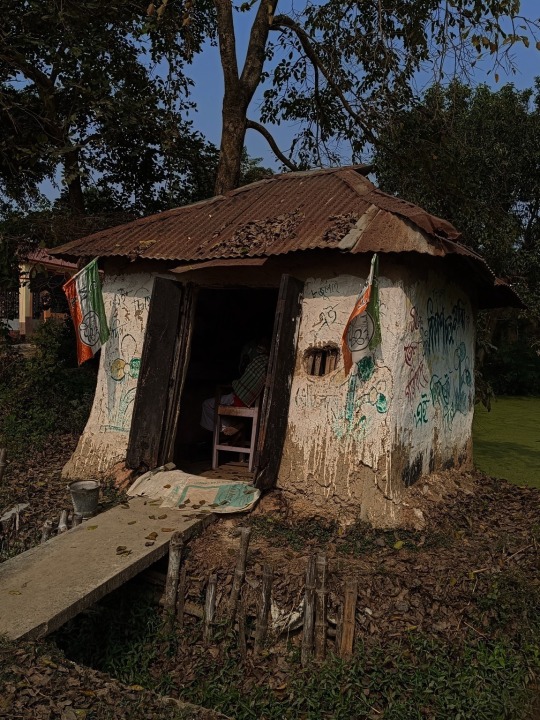
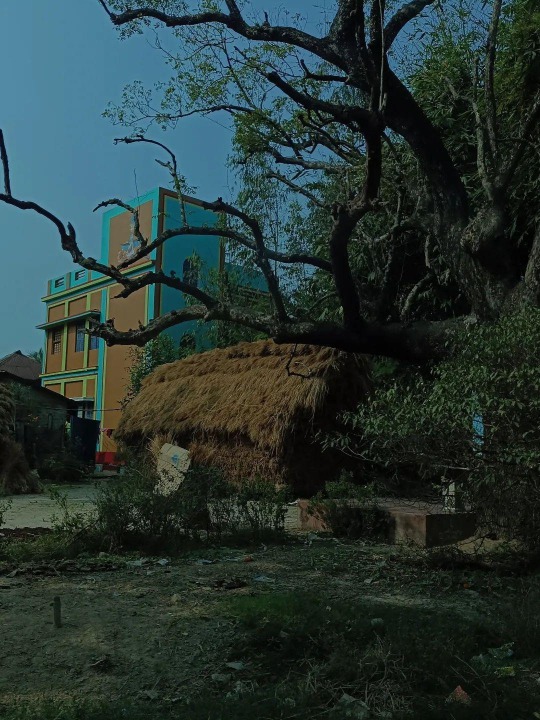


Photographs from my road trip across rural Bengal.
#everything was so golden! the soil the sunlight the hay etc. maybe because its that time of the harvest season#but i see why rabindranath wrote amar shonar bangla he wasnt being metaphorical#my photography#original photography#bangla tag#desi tag#desi aesthetic#desi tumblr#desiblr#south asia#south asian#india#west bengal#rural#rural architecture#street photography#nature photography#p
728 notes
·
View notes